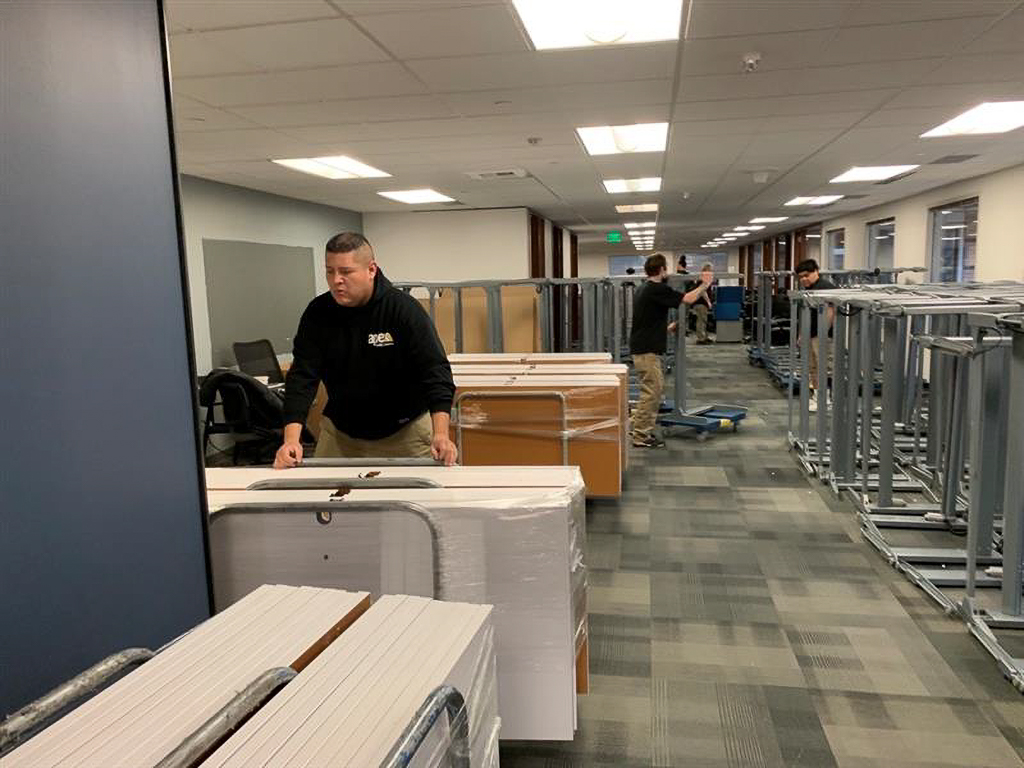Today there seems to be an emphasis on being “sustainable” in the office. However, this is more difficult than you might imagine for several reasons. Most impactful is that workspace planning styles have changed dramatically in the past 10 years. Workstation dimensions have been reduced by 50% and space division has been removed to accommodate the open plan.
Changes in workstation styles and space division have impacted the evolution of technology. This has reduced the need for worksurface space and paper storage. With workstation size reduction and data storage in the cloud, workstation furniture from the past is now obsolete. The EPA (Environmental Protection Agency) estimated that 8.5 million tons (17 billion pounds) of office assets end up in landfills annually, and this was in 2018! From the beginning, we have successfully solved many client workspace needs with remanufactured and used products.
The Emergence of the Imported Product
Import workstation products have become more viable. Which has led many of them to “clone” the leading manufacturers’ largest install base nationwide (Herman Miller AO2 & Steelcase 9000). These product solutions quickly became more affordable, available, and reliable. Allowing for the import manufacturers to become an alternative to used and remanufactured furniture solutions. Considered “fast followers”, they improved the original products they were cloning and released simplified and affordable system products. The emergence of the imported product better met the demand for smaller workstation footprints and work areas.
Today we see flexible workspace strategies, wellness, and ESG (Environmental, Social, and Governance) trends pushing manufacturers to deliver low-carbon, sustainable product solutions. The result is a resurgence of “greenwashing” in the office furniture industry. While, many of these “carbon neutral” products still require fossil fuels and energy for sourcing, manufacturing, and delivery. Many manufacturers market their products as 98% recyclable, but the reality is that the cost to handle, ship, and manage the “recycling” of these products by far exceeds any chance of someone paying for it so the claim is one of the most misleading in the market.
The truth is that the commercial office furniture industry has little chance of becoming truly carbon-neutral or “sustainable” any time soon. However, manufacturers have made progress in many categories: leveraging sustainable energy (solar), Lean Manufacturing, Forest Stewardship, low/no VOC materials (volatile organic compounds), recycling waste materials, and more. Since workstation planning styles continue to evolve to a smaller footprint, resource reuse has been more difficult if not impossible. The problem is that the customer is unwilling to pay for sustainability and the manufacturers need to be profitable to survive.
Sustainability Starts with Blended Solutions
We can reuse resources as a viable option to deliver sustainability to the industry. This requires architects and designers to think outside of the box, but also increasing access to viable used furniture solutions! Workspace planners don’t always have the training, access, or time to include used furniture in their new office designs. In addition, most office furniture dealers do not have the service capabilities or the business model to support delivering a blended furnishing solution.

Ultimately customers need to be willing to invest in the process and this is difficult when we are all trying to attract employees back to the workspace. Sustainability efforts help divert from our landfills and reduce energy use. This is an incentive for workspace Wellness/LEED certification.


